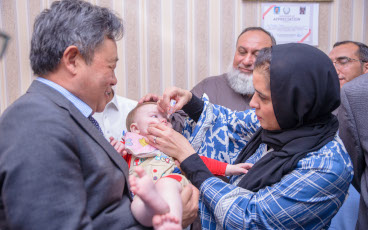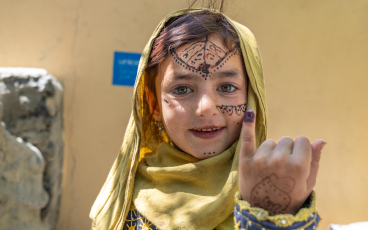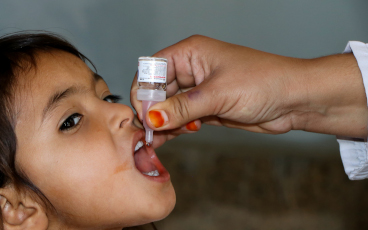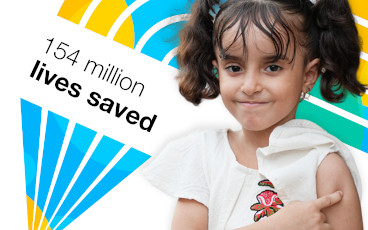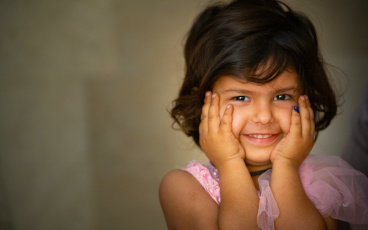Trains: the new setting for polio eradication in Pakistan
With families on the move posing one of the biggest challenges to eradication in Pakistan, an innovative campaign is vaccinating children on trains.
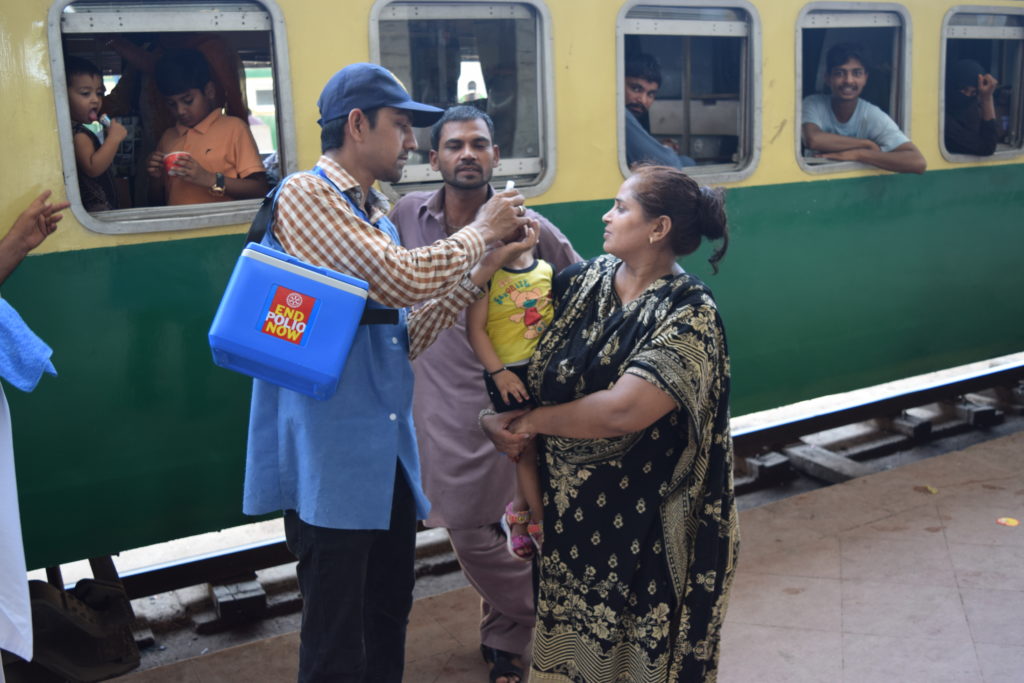
Dressed in a blue uniform, carrying a vaccine carrier on his shoulder, Imran Khan is a polio vaccinator working at Karachi Cantonment Railway station. “I make sure no child under five travelling by train is missed during the immunization campaign,” he says. Apart from vaccinating children, Imran also sensitizes their parents on the importance of vaccination and threats posed by the crippling disease.
Vaccinating children inside trains is a unique initiative introduced in Pakistan’s Sindh province which is connected with the rest of country through a railway network that transports millions of people every day. Passengers include people travelling to visit family and communities living on the border between Pakistan and Afghanistan as well as seasonal migrants and displaced populations. With many of these people moving between areas where polio continues to circulate, the threat of the virus continuing to survive as it moves from place to place via this human network is one of the biggest challenges the programme is facing. Reaching children on the move with the polio vaccine is therefore critical for stopping the virus.
Currently there are more than 500 permanent transit points across the country, where vaccination teams work to vaccinate all children under the age of five as they cross district, provincial and national borders. The strategy to vaccinate children inside trains themselves was started in Pakistan’s Sindh province in January 2017. Since then, during each vaccination campaign, polio workers vaccinate children travelling on the popular rail route between Karachi and Hyderabad, Sindh’s two biggest cities, which was selected for the project implementation.
“During campaign days, I travel from Karachi to Hyderabad on a daily basis. Along with other team members, we visit all the train compartments to vaccinate each and every eligible child”, says Imran Khan with passion in his voice.
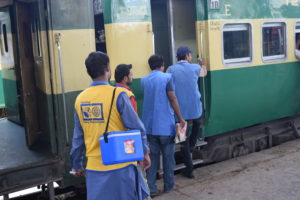
According to Dr Nawab Khan, High Risk Mobile Population coordinator with Pakistan’s Polio Eradication Initiative: “To maintain and increase population immunity against polio in Pakistan, reaching children through public transport routes is an effective outreach strategy. It plays an important role in interrupting the transmission of poliovirus and represents a great opportunity to vaccinate children missed during door-to-door immunization campaigns.”
More than 24 thousand children have been vaccinated inside trains running between Karachi and Hyderabad since the project started.
It is thanks to the use of innovative strategies such as this one that the Pakistan Eradication Polio Programme has come so close towards achieving a future in which polio no longer endangers children, families, and communities. The progress can be seen in the declining number of wild poliovirus (WPV) cases in Pakistan: from 306 cases in 2014, to 54 in 2015, and 20 in 2016. As of October 2017, the total number of WPV cases reported in Pakistan stands at five.



